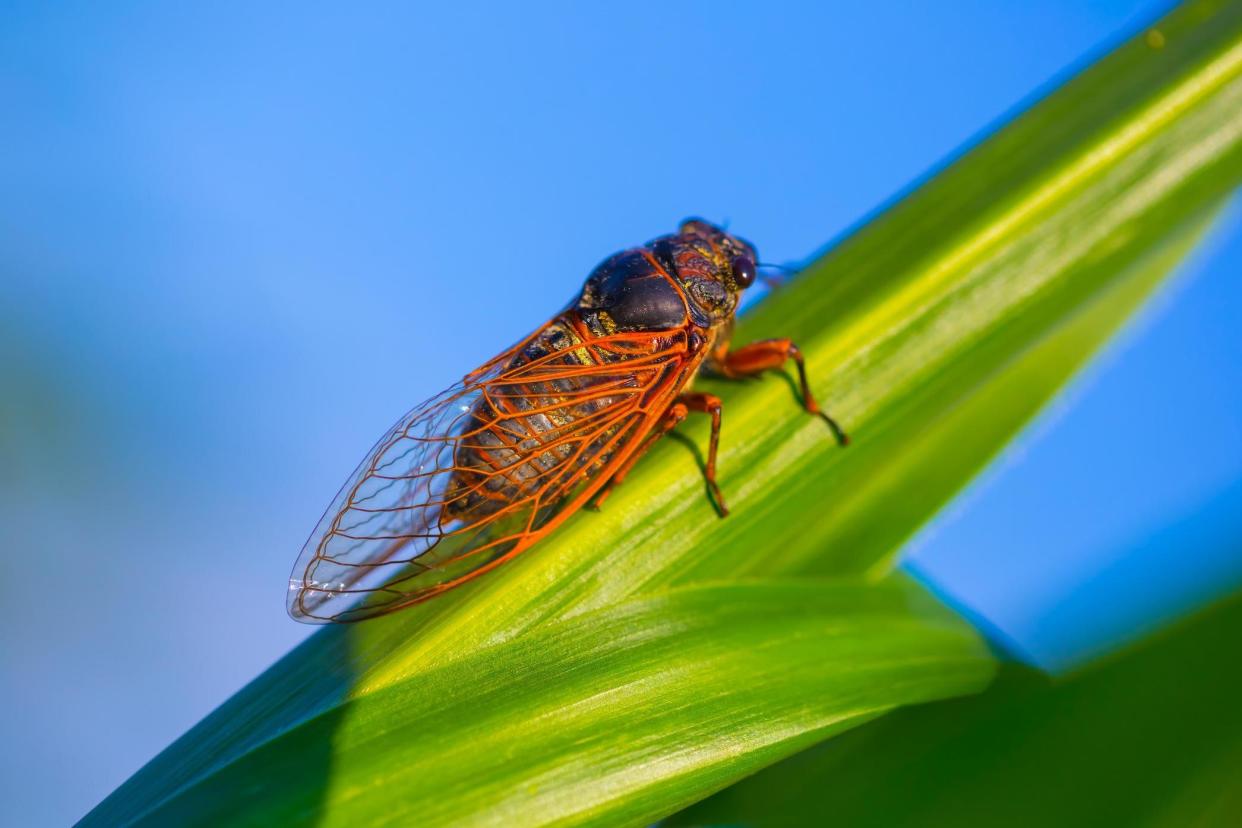Millions of Cicadas to swarm parts of US this year

Millions of cicadas are expected to surface in parts of the US this summer in Virginia, North Carolina and West Virginia.
Officials are warning that certain areas count face as many as 1.5 million cicadas per acre.
The bugs are large, clear-winged insects with bulbous eyes.
"Communities and farms with large numbers of cicadas emerging at once may have a substantial noise issue,” Eric Day, an entomologist in Virginia Tech's Department of Entomology said.
"Hopefully, any annoyance at the disturbance is tempered by just how infrequent — and amazing — this event is."
Brood IX are set to emerge from underground after 17 years underground, according to a press release by Virginia Tech.
The cicadas operate either on an annual or 13 or 17 year cycle, with researchers suggesting that the length of these cycles could be attributed to avoiding predators.
“When the cicadas emerge, the amount of biomass they provide could serve as a food source for potential predators to take advantage of,” the release continues.
“It is theorized that these cicadas have evolved to avoid syncing up with predator cycles by having a 13- or 17-year prime number emergence interval.”
Their timing also depends on the species, the department said.
When exactly the cicadas will emerge is still unknown, according to the report, although researchers have predicted the brood will span Southwest Virginia, parts of North Carolina, and West Virginia.
“Each periodical cicada brood covers a specific geographical region, with some areas overlapping, it said.
According to Virginia Tech, people who live in these regions will experience a unique natural phenomenon that has not occurred in most of the area since 2003 and 2004.
Read more
When we take bee deaths seriously, it will already be too late
National Trust defends killing wasps despite rapid insect declines
‘Super’ wasps’ nests the size of a car are threatening America

